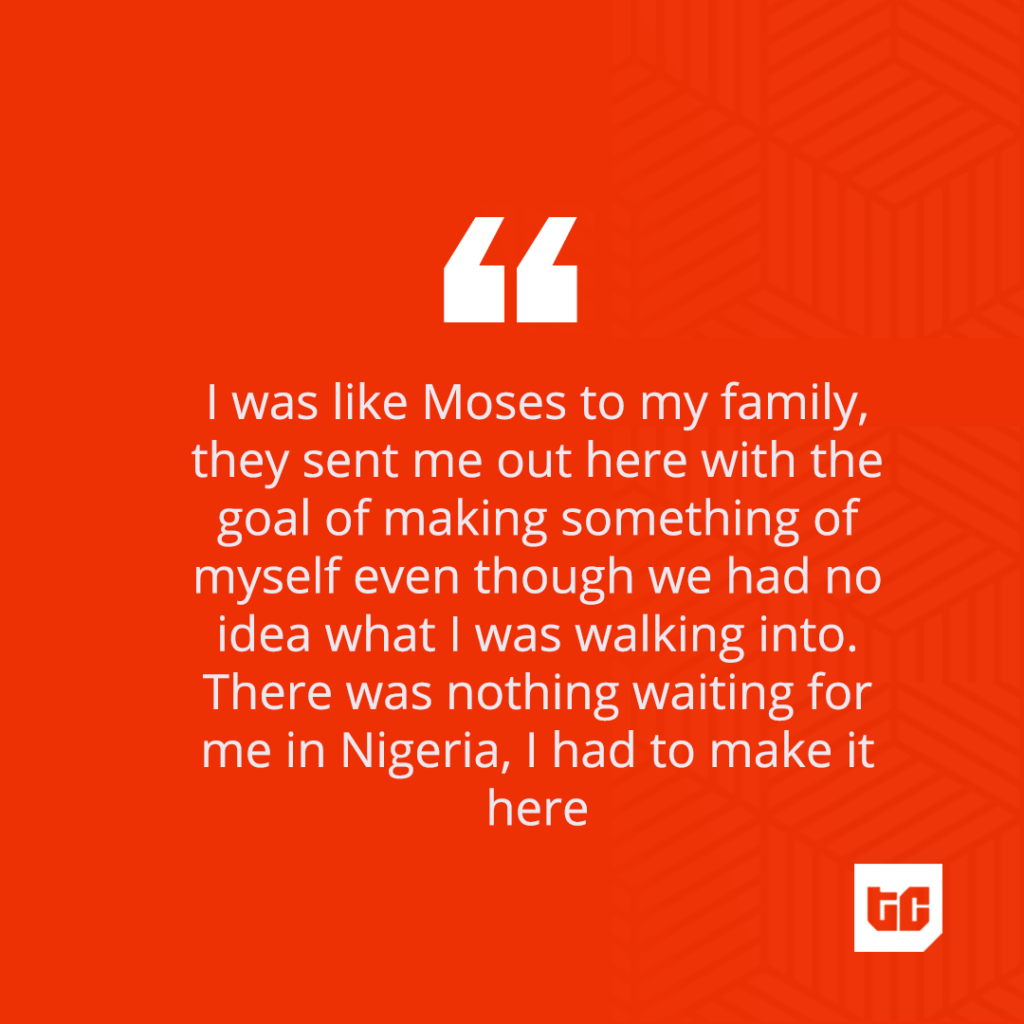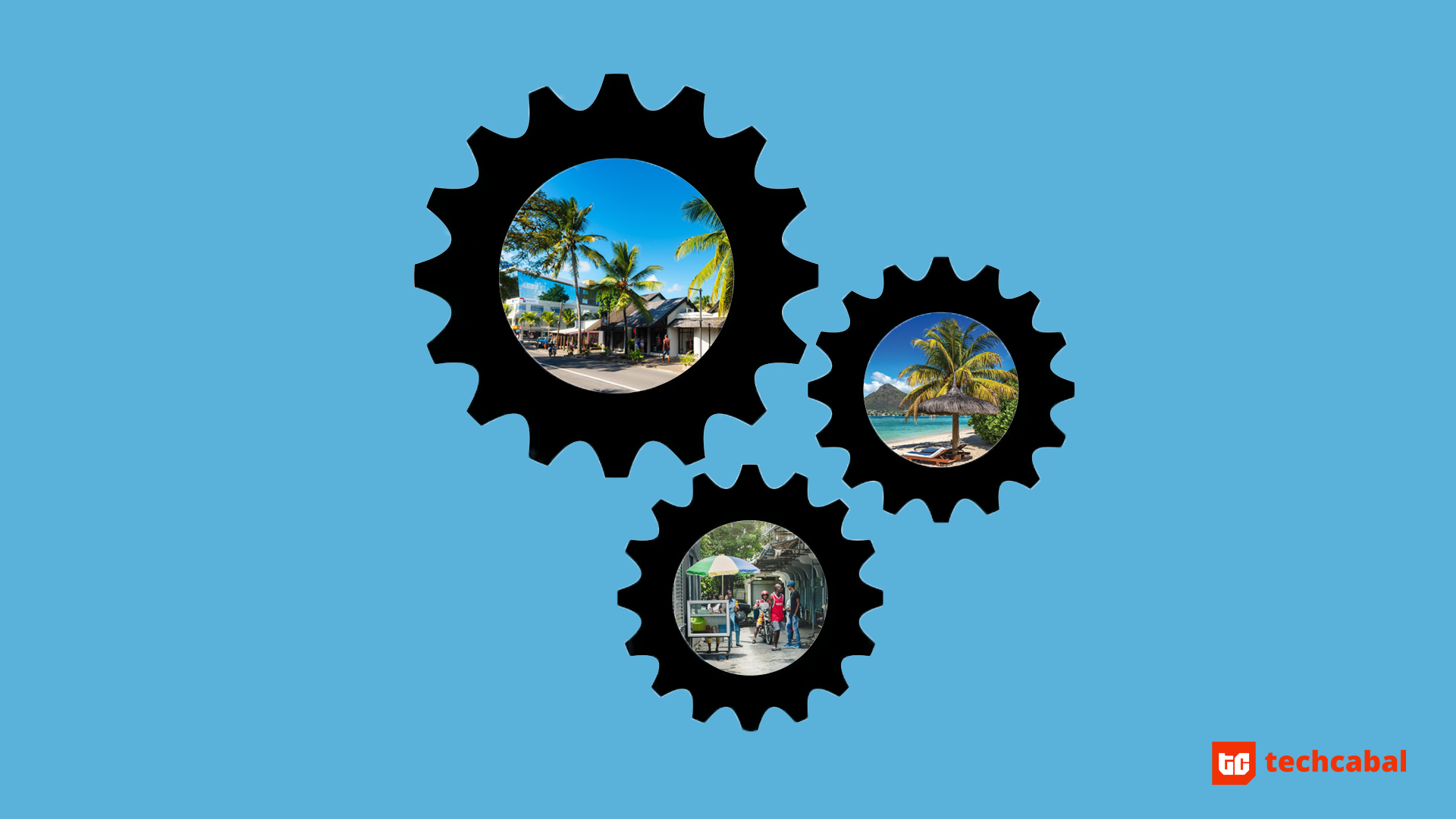It’s 5:19pm in Lagos when my conversation with Jerome ends. His final text to me is: “I’m living and working on paradise island, I can’t complain.”
Grab a chair, catch up on last week’s abroad tech life because there will be a lot of “God when” in today’s story.
Jerome is a software developer who lives and works in Mauritius island, a picturesque island protected from the open sea by the world’s third largest coral reef.
My first question is: how does a Nigerian end up in Mauritius?
For Jerome, the story starts in 2003 and a 50% scholarship offer to study at any of the campuses of Middlesex University. He had three other choices: Dubai, Malta or the U.K.
In the end, he chose Mauritius because “50% of the fees added to the cost of living made a lot more sense for my parents’ pockets to go to Mauritius, rather than UK or Dubai or Malta, where the other Middlesex campuses are”
Despite attending the campus in Mauritius, the syllabus and standards remained the same.
He tells me: “The systems were optimal, and we had proper equipped labs, and that was at a time when we were tenants on another school’s building.”
The University now owns its own building and the facilities are better. Why manage good when you can have better?
While Nigerian universities still fill course forms on paper, the world has moved on. Remember Tunde in China?
Jerome’s experience in the University was similar. “We had a system called Turnitin. On Turnitin you’d submit a report for example, and it would tell you how many percent plagiarism you had.”
“Now the lecturer would have given you leeway of 15% and Turnitin would tell you you had 25%.”
Turnitin does more than check for plagiarism. Students check their assignment, test and exam scores on the platform as well as a break-down of their scores.The University of Middlesex uses Unihub as well, an all-purpose hub serving varying needs.

“Not only could you find all the materials for your course on Unihub, you could find folks on other campuses doing your course, and share knowledge on assignments”
Unihub compasses your entire academic life allowing you to see course requirements, marking schemes, and past questions for exam categorised by year.
Imagine never having to buy past questions or handouts?
After his University education, Jerome did not consider returning to Nigeria, there was no scenario in which it was on the cards.
“I was like Moses to my family, they sent me out here with the goal of making something of myself even though we had no idea what I was walking into. There was nothing waiting for me in Nigeria, I had to make it here”
The chances of getting permanent work and getting permits to work in Mauritius are slim, and Jerome admits a lot of things had to fall in place for it to happen.
Now he works in a tourism company and his day to day life is as simple as it gets.
“My life is work, home and football.”
We talk about payments when we talk to Nigerians abroad and this time is no different. It’s interesting to know if they use credit/debit cards, mobile money or plain old cash.
“I’m very much a card guy, I pay via card as much I can, or via JuiceByMCB, an app from Mauritius Commercial Bank that allows you make payments in most places to anyone who has an MCB account. I use their phone number if they can’t remember their account number.”
But cash still comes in handy for taxis and buses.
While we’re on the subject of money, I ask one of my favorite questions: how much data can $5 buy?
Jerome is on a monthly plan which gives him 1.5GB of data daily and costs $8 every month.
“If you exhaust 1.5gb before 24hrs, you still have internet access, it becomes slower and you wouldn’t notice on mobile.” It helps that Wi-Fi is available at most public places.
The easy pace of our conversation is the reason I almost miss it when Jerome mentions that Mauritius has a minimum wage of 9,000 Rupees (₦88,832, $245).
Employers are also mandated by law to pay the transportation cost of their employees or provide a means of transportation for them.
I didn’t need to ask, but he has no plans of returning to Nigeria. Hear him describe his daily life: It’s bliss on most days, I can’t lie.
“My apartment is in front of the blue sea and I still get surprised every morning when I step out of the house to go to work like, ‘I really live here!’ “
But in 2016, he visited Nigeria on holidays and I ask how much of a shock it was to return home.
“On one hand I had gotten so used to systems, processes, a level of organization. But on the trip back home from the airport, I was looking at the roads and the traffic and the conditions of the roads. And I found myself thinking. ‘nothing has changed!’ ”
“I was in the car thinking, ‘I remember this pothole.’ ”
Imagine having to write this as you’re waiting to close from the office and getting into all the potholes of Lagos traffic.
So, on to more cheerful matters, what’s the Mauritius airport experience like?
“Immigration has a couple of lines divided into Mauritian residents and non-residents”
From there, you scan your passport and go on your merry way.
“I don’t think they have China level tracking, but they definitely keep track of you while you’re on the Island
“You go with your passport to any sim shop, there are two main networks: MyT and Emtel. Till today I if I ever need to do anything about my sim, I show up with just the passport, including retrieving the line after a phone loss,” he says.
Where do Nigeria and Mauritius rank on a scale of 1-10 for tech experiences for Jerome?
“I can’t say I had much of a tech experience while I was in Nigeria.”
If that sounds like a 1 on the scoreboard, that’s exactly what it is. But Mauritius gets an 8 because, while Jerome says he’ll like to see more tech, he can’t complain.
If you want to share your “abroad” tech experience with TechCabal, send me an email: muyiwa@bigcabal.com





















